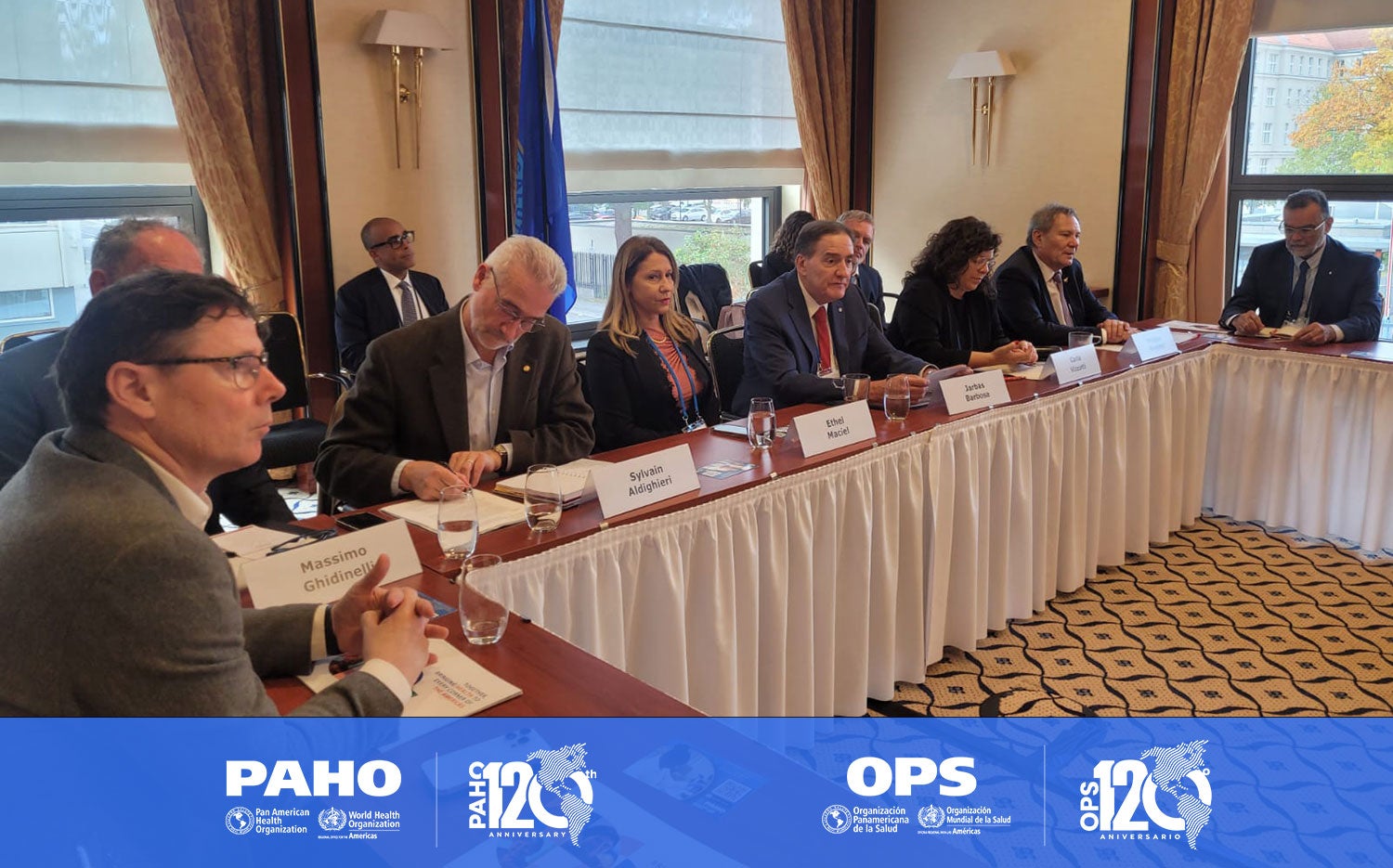
Berlin, October 15, 2023 - During the World Health Summit in Berlin, the Pan American Health Organization (PAHO) Director, Jarbas Barbosa, presented the Organization’s strategy to eliminate more than 30 communicable diseases from the region of the Americas.
Speaking at an event during the global health gathering, the PAHO Director said the PAHO drive builds on the region’s “successful track record of stopping the transmission of dangerous diseases,” such as smallpox and polio, and aims to address preventable threats that “nobody should have to fear today,” Dr. Barbosa said.
The PAHO Elimination Initiative aims to eliminate more than 30 communicable diseases and related conditions by 2030. It targets, among others, malaria, cervical cancer and mother-to-child transmission of HIV, but also neglected tropical diseases that affect vulnerable or remote populations in Latin America and the Caribbean, such as trachoma, lymphatic filariasis and Chagas disease.
“We have tools at hand, and we know that the integration of these tools into primary care is key to addressing these diseases,” said Sylvain Aldighieri, Director of PAHO’s Department for the Prevention, Control and Elimination of Communicable Diseases. “Over the past three years, countries in the Region have been working together to combat the pandemic and many innovative approaches were put in place to ensure continuity in the provision of health services and precious lessons were learned,” he said.
During the event, PAHO Member States showed commitment towards the PAHO initiative, including the Minister of Health of Argentina, Dr. Carla Vizzoti, who presented her country’s efforts to eliminate Hepatitis C. Dr. Ethel Maciel, Secretary of Surveillance in Health and Environment in Brazil, spoke about the country’s strategy to eliminate diseases in the context of social determinants and intersectoral work, and participants were also briefed on efforts from Antigua and Barbuda to eliminate cervical cancer. Philippe Duneton, Executive Director of UNITAID, stressed the role of innovation and their potential to contribute to diseases efforts.
But key to the disease elimination drive, the PAHO Director underscored, would be to ensure countries have access to lifesaving health tools and innovations, such as through PAHO’s Regional Revolving Funds. “Ensuring access to the range of vaccines, diagnostics, medicines, and emerging technologies we have at hand will be an important factor in stopping communicable diseases,” he said. One of the goals of the initiative, for example, is to achieve 90% HPV vaccination coverage among 15-year-old girls in the region.
The initiative also aims to make a broader impact on regional public health systems, following the deep-rooted inequities and vulnerabilities exposed by the COVID-19 pandemic. “By improving supply, delivery and diagnostic mechanisms, the Elimination Initiative will be a crucial driver for bolstering health system resilience and preparedness in the face of future pandemics,” the PAHO Director said.
In 2019, Pan American Health Organization Member States approved the Disease Elimination Initiative: A Policy for an Integrated Sustainable Approach to Communicable Diseases in the Americas committing to eliminating more than 30 communicable diseases and related conditions by 2030.
While the COVID-19 pandemic slowed down the pace towards the elimination of communicable diseases, many innovative approaches were put in place to ensure continuity in the provision of health services.
The initiative was relaunched in September 2023, galvanized by these recent pandemic experience, and will work across four main areas: reinforcing the integration of health systems and service delivery; strengthening health surveillance and information systems; addressing the environmental and social determinants of health that promote transmission and bolstering governance, stewardship, and financing to eliminate preventable and treatable diseases.




